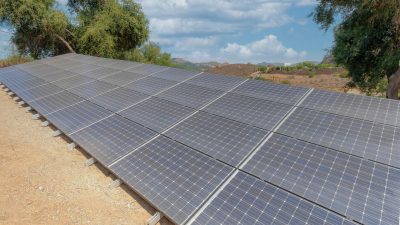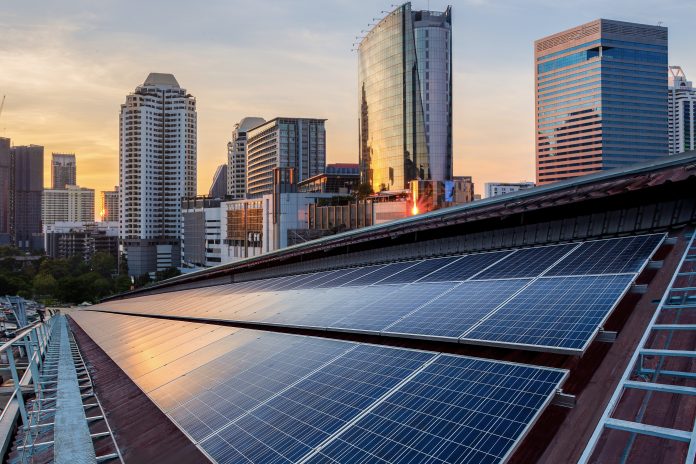Once you’ve decided to use a renewable energy source, you might think of installing solar panels. A solar panel works by absorbing the sunlight to produce electricity. Typically mounted on the roof, solar panels can also be mounted on the ground.
While most homeowners are familiar with rooftop-mounted solar panels, installing ground-mounted ones can also be beneficial. In fact, regardless of your preferred mounting option, countless advantages come from going solar that aren’t exclusive to the kind of mount you install. However, it’s essential to make a well-informed decision that’s best for the needs of your home.
So, before you hire home solar installers, read below to know the difference between rooftop and ground-mounted solar panels and which can benefit you most.
What To Know About Rooftop Solar Panels
Rooftop solar panels are the go-to choice for many homeowners. Since not all have big yard space, residential property owners often prefer to install solar panels on their roofs.
Rooftop solar panels are also cheaper and simpler to install, making them the default choice for most homeowners. However, they also have pros and cons you should be aware of before you finalize your decision, and these include the following:
Pros Of Rooftop Solar Panels
- Space Efficient
If you want to install solar panels but don’t have enough yard space, it makes sense to consider rooftop solar panels. This won’t only help you save your yard space, but you’ll also make your roof more useful.
- Low Installation Costs
The good thing about rooftop solar panels is that they take advantage of your roof structure. Suppose your home is constructed to handle the extra weight of solar panels. In that case, you can quickly install the racking structure without investing in a separate load-bearing foundation for the panels. It means you’ll save on the installation costs.
Unfortunately, you may not be able to enjoy this benefit if you have an older property constructed to less strict standards and suffered from wear and tear throughout the years. So, before you decide to go solar, it’s wise to perform a structural analysis to ensure that your roof can support the additional weight of solar panels without any problem.
Cons Of Rooftop Solar Panels

- Imperfect Orientation
Proper orientation can make a difference in getting the most out of your solar panels. Solar panels get the most power when they face the South direction. To maximize your energy savings, it’s frequently wise to rotate them toward the West direction to generate power during the afternoon.
With rooftop solar panels, it isn’t likely that you’ll get the ideal orientation for your system. Your choices can be limited due to the space available on your roof. However, rooftop solar panels are an excellent choice for East- or West-facing rooftops.
- Limited Roof Space
Some rooftops can’t accommodate solar panels. Since they are quite big, your roof may not have the space you need to install solar panels. Remember that most homes may require about two or more solar panels to offset their utility bills.
The space can be limited depending on the shape or size of your roof and placement of things, such as fire line setbacks, vents, and air conditioning units. For this reason, you might need to install some solar panels on the ground to meet your needs, which can be an additional cost.
- Less Accessible
Although rooftop solar panels can help you take advantage of unused space, they can be difficult to access for maintenance and installation. It’s better to opt for rooftop solar panels if you’re comfortable and physically capable of climbing your roof. You may also require proper safety equipment to install and maintain your solar panels.
Like other things, solar panels also require maintenance. They should be cleaned at least once a year to eliminate the debris or dirt that may affect their performance. If your solar panels are installed on your rooftop, you may encounter so much hassle because you’ll need a ladder and other safety equipment whenever you check the system.
What To Know About Ground-Mounted Solar Panels
As their name implies, ground-mounted solar panels are installed or mounted on the ground. They can be installed in any area of your property with good sun exposure and sufficient open space.
The solar panels can be placed from a few feet or inches off the ground, depending on your preferences. Generally, a residential ground-mount solar installation uses 60-cell solar panels, which are the same size used in rooftop installations.
Like rooftop solar panels, ground-mounted solar panels have advantages and disadvantages. These include the following:
Pros Of Ground-Mounted Solar Panels
- Multiple Installation Options
Ground-mounted solar panels can be installed in almost any area of your property to produce energy. They don’t also require safety precautions or much maintenance because the ground is a natural insulator, protecting them against electrical shorts.
Ground-mounted solar panels have efficient terrestrial designs compared to other typical solar panel installations. It means they’re more secure from possible wind damage than other elevated counterparts.
- No Roof Hassles
With ground-mounted solar panels, you won’t experience any roof hassle. Most installers line up the solar panel system’s life with the roof. For instance, if the roof has fewer years left, they’ll recommend redoing the roof first to avoid re-installing the panels in the future. So, if you think your roof can’t handle the weight of solar panels in the coming years, you might want to consider ground-mounted solar panels instead.
- Easy Solar Panel Maintenance
One of the best things about ground-mounted solar panels is that they’re accessible. While solar panels don’t require high maintenance, it’s much easier to access solar panels at ground level in case of repairs.
There are also fewer essential solar panel maintenance tasks that can be easier at ground level. For instance, while the snow melts fast on solar panels, you have to wait until the snow completely melts for solar panels to absorb the sun’s power. With ground-mounted solar panels, you can safely and easily clear off the snow.
Cons Of Ground-Mounted Solar Panels
- More Expensive
Unlike rooftop solar panels, ground-mounted panels may require a bigger investment because they need a concrete foundation. A secure structure is necessary to ensure the security and safety of ground-mounted solar panels. Aside from an additional expense on the foundation, the installation process may also take time to finish.
You may also need to deal with permits other than the material and labor costs. Typically, permits for ground-mounted solar panels are costlier than the standard permits for rooftop solar installation.
- Vulnerable To Vandalism And Theft
Ground-mounted solar panels can also be vulnerable to vandalism and theft. Since they’re more accessible than rooftop solar panels, burglars can quickly steal your panels. However, this can be avoided by securing the installation area.
- Limit Your Yard Space
Once you install solar panels on the ground, you’ll limit your yard space. In other words, you might not be able to use your extra property space for other uses as an additional outdoor entertainment area.
- Require Additional Protection
Ground-mounted solar panels should be installed in a place that’s not trespassing on any privately owned land or neighboring property. It means they require some kind of protective barrier around the perimeter, like a barbed-wire fence. It makes the installation longer and increases the overall cost.
- Higher Chance Of Accidents
Ground-mounted panels can be more vulnerable to damage than rooftop solar panels. This is especially true if your yard is surrounded by trees or other objects that may destroy your panels.
- Make Mowing Harder
If you often mow your lawn or yard, ground-mounted solar panels may cause inconvenience. The panels and posts might cover much of the ground that typically requires clearances, making mowing harder.
Due to height restrictions in other regions, ground-mounted solar panels are also limited in their placement options. Therefore, if you want to maintain the beauty of your lawn and landscape, you should think twice before installing ground-mounted solar panels.
Should You Opt For Ground-Mounted Or Rooftop Solar Panels?
When deciding which solar panels are ideal for your home, there are some factors to consider before making a decision. For example, if you’re considering rooftop solar panels, you need to consider your rooftop space, roof’s overall condition, and possible obstructions like vents and skylights.
When it comes to ground-mounted solar panels, you need to consider the space available on your property and the location. Do you have enough space or the right space to mount solar panels on the ground? If not, rooftop solar panels might be a better choice for you.
Both are excellent options depending on your ultimate priorities and goals with your solar panels and how much you’re willing to invest. Either way, whether you opt for ground-mounted or rooftop solar panels, you’ll be able to enjoy the advantages of using solar energy for your home.
Conclusion
Solar panels are undoubtedly a good investment for every homeowner. However, to make the most of solar power, you must decide wisely between rooftop and ground-mounted solar panels. Although both options can offer you various benefits, such as reduced carbon footprint and cheaper utility bills, choosing the best one for your home can help you enjoy using this renewable energy source without inconvenience.



















